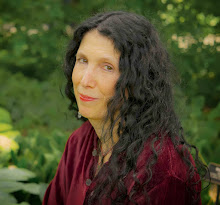I met Alfred DePew at the Virginia Festival of Books and we got to talking after my reading. When I found out that he was also a writer, I snagged him for my blog. He's been a bookseller, theater press agent, social worker, and advertising copywriter, a short story writer and a coach, and he's taught in France, Spain, England, Estonia, and Russia, as well as at the universities of Vermont, New Hampshire, the Salt Institute for Documentary Studies, and the Maine College of Art. Now he leads writing, creativity and leadership workshops throughout Maine and the United States. His first book won a Flannery O'Connor Award, and his second book, A Wedding Song for Poorer People (great title) is all about the longing that exists in all of us.
Alfred and I had a hours long conversation by phone. I typed out notes! I wrote them by hand! We were both laughing and engaged!
And I lost the notes.
But there is always something that remains, and here it is. And I'm absolutely thrilled to have Alfred here!
-->
For
most writers I know, every book presents a new challenge. The writing process
is almost never the same. How did that process differ for you in writing A
Wedding Song for Poorer People?
After my
first book was published in 1992, I thought I should know a thing or two about
writing a story. I thought I could probably write the kind of story (what the
hell does that mean?) that gets accepted by The New Yorker or The Atlantic
Monthly. So I set about to write new stories, and everything felt flat. Never
before when I wrote had a given publication a thought, much less a particular
magazine. I wrote to find out what my characters would do next. Period. So I
was stuck. Everything I wrote felt flat because I was writing for the wrong
reason. There was no joy, no discovery, no messing around. I was trying to be
competent. Deadly. So I signed up for an oil painting class Thursday evenings,
and I was in heaven. I didn’t know the hell I was doing. Everything was a risk
and a mystery. I was learning again, discovering again, and that experience
helped me back into writing.
I’d been
given a fellowship at the Wurlitzer Foundation in Taos, New Mexico for 1995,
and I’d made 3 trips to Russia (1990, 91 & 93) which had given me an idea
for what I thought might be a novel, and which turned out to be the title
novella, A Wedding Song for Poorer People. So I was working in a different form
which changed everything really—the number of characters, time, pacing, context,
scope, the shape of the thing. Because I didn’t know what I was doing, I was
happy again, messing around, free to take big risks.
Your
stories are full of longing, a painter who can’t paint, a man who is tormented
by his wife’s friendship with her gay hairdresser, and so many who do “what
they need to do stay alive.” But all do, and what impressed me so much is
that no matter how dire the situation, your characters always find that thin
line of hope. Could you talk about that please?
I guess my
characters always find that thin line of hope because I believe it is there.
I
want to ask you, why short stories or novellas and not a novel?
I wish this
were more of a conscious decision, but even when I think I’m heading into
writing a novel and type pages and pages and think I have a really BIG thing
with lots of moving parts, it always gets compressed down into a shorter form.
You
also teach--how does that impact your own work?
The risks
my students took almost always inspired my own. I miss that. I left college
teaching in 2003. Sometimes I run small writing workshops in my office, and I
still like coaching writers through long projects like a novel.
I
have to say I was fascinated by your bio. Not only are you a Flannery O’Connor
Award-winner, but you also have a private consulting practice in dream work and
spiritual direction. I’d love to hear more about that, and I’d also like to
know how that informs your writing.
In many
ways, I feel I’ve kept my various professional lives separate from my writing
life, but we both know that’s pretty much impossible. They knock up against
each other, compete with each other, feed each other in ways I don’t recognize
until much later. I wrote about a massage therapist before I became one myself.
I wrote about Roger’s religious crisis a good six years before I joined the
Catholic Church. I don’t think of myself as an autobiographical writer, but in
some ways, my fiction prefigures parts of my life, as if I were trying out
various roles through my characters.
What’s
obsessing you now and why?
Contemplative
prayer. Why? I guess that’s for a longer conversation.
\





















